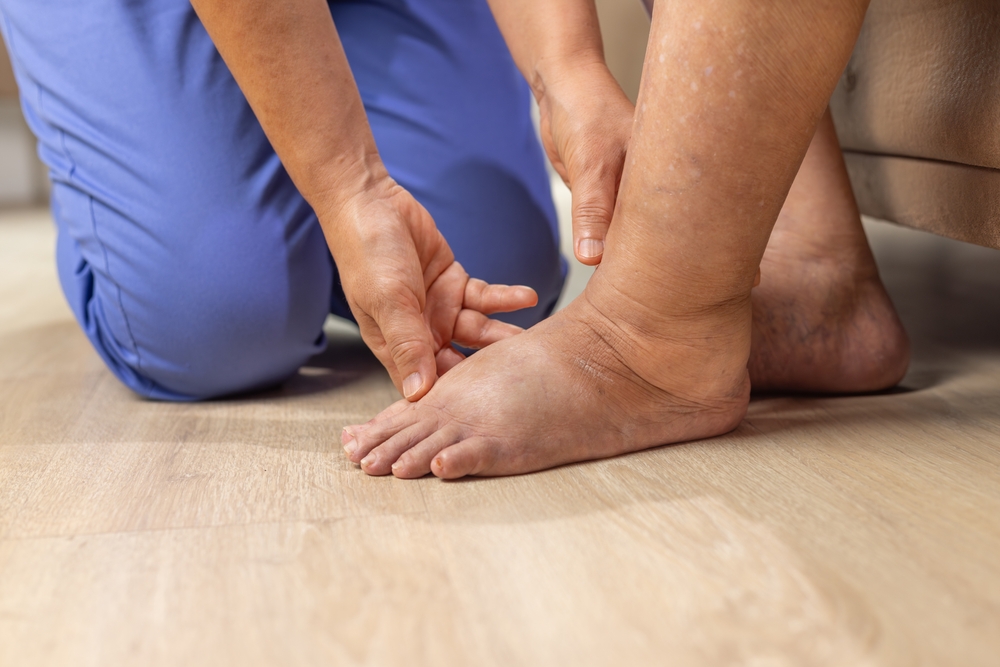Noticing persistent swelling in an arm or leg can be unsettling, and it’s natural to wonder if it’s a temporary issue or something more serious. Knowing when to see a doctor for lymphedema is crucial for your long-term health. Lymphedema is a chronic condition that, if left untreated, can lead to significant discomfort and complications. Recognizing the key lymphedema warning signs and seeking timely medical advice can make a substantial difference in your prognosis and quality of life. Delaying a diagnosis can make the condition harder to manage, so it is vital to consult a professional, like a vascular health specialist, if you have concerns. Get a consultation with the best vascular disease specialists in Brooklyn.
Key Lymphedema Warning Signs That Warrant a Doctor’s Visit
It’s important to listen to your body and take any new or unusual symptoms seriously. While some swelling can be temporary, certain signs are red flags that should prompt you to schedule a medical appointment.
- New or Persistent Swelling
This is the most common and significant sign. You should see a doctor if you experience:
- Swelling in an Arm or Leg: The swelling may affect part or all of your limbs. It might feel soft at first and even go down with elevation, but it returns.
- A Feeling of Heaviness or Fullness: The affected limb feels tight, heavy, or achy. You might notice that your watch, rings, or clothing feels tighter than usual.
- Swelling That Lasts: If you have swelling that doesn’t go away after a day or two of rest and elevation, it’s a clear signal to get it checked out.
- Skin Changes in the Affected Area
Lymphedema doesn’t just cause swelling; it also affects the skin. Be on the lookout for:
- Thickening or Hardening of the Skin: The skin may start to feel firm, thick, or tough. This condition is called fibrosis and indicates that the lymphedema is progressing.
- Pitting Edema: When you press a finger into the swollen area, an indentation remains for a few seconds. This is a common sign in the early stages.
- Texture Changes: The skin might develop a texture similar to an orange peel.
- Reduced Mobility or Discomfort
As the condition advances, it can impact your ability to move freely.
- Restricted Range of Motion: Swelling in or around a joint, like your wrist, elbow, ankle, or knee, can make it difficult to bend the limb.
- Aching and Discomfort: A constant, dull ache in the limb is another common complaint that should not be ignored.
- Signs of Infection (Cellulitis)
People with lymphedema are at a higher risk of developing a serious bacterial skin infection called cellulitis. This is a medical emergency. Seek immediate medical attention if you notice:
- Redness, red streaks, or blotchy patches on the skin
- The affected area feels warm or hot to the touch
- Sudden increase in swelling
- Pain in the limb
- Fever or chills
Why You Shouldn’t Wait to See a Doctor
Understanding when to see a doctor for lymphedema is about recognizing the importance of early intervention. Delaying a diagnosis can have significant consequences:
- The Condition Can Progress: Lymphedema is a progressive disease. Without treatment, the swelling can become more severe, and the tissue can become permanently damaged and hardened.
- Increased Risk of Infection: Chronic swelling creates an environment where bacteria can thrive, leading to recurrent and potentially dangerous infections.
- Decreased Quality of Life: Unmanaged lymphedema can impact your mobility, ability to work, and emotional well-being.
Who to See for Lymphedema Symptoms
Your first stop should be your primary care provider. They can perform an initial evaluation and rule out other causes of swelling, such as a blood clot or heart condition. If lymphedema is suspected, they will likely refer you to a specialist.
A vascular health specialist is an expert in diseases of the circulatory system, including the lymphatic system. They can provide a definitive diagnosis and oversee your treatment plan. For those in New York, a specialized vascular clinic in Brooklyn can offer comprehensive care, from advanced diagnostic imaging to connecting you with certified lymphedema therapists. Visiting a vascular clinic in Brooklyn ensures you receive care from a team experienced in managing complex lymphatic conditions.
Recognizing the lymphedema warning signs and acting on them is a proactive step toward protecting your health. If you are experiencing any of the symptoms described, don’t dismiss them. Schedule an appointment with your doctor to get an accurate diagnosis and start a management plan. Early and consistent care is the key to living well with lymphedema. For any vascular problems, call us on + 1-718-367-2555. The Vascular Disease Specialists at Doral Health & Wellness consistently have outstanding patient satisfaction ratings. The professionals at Doral Health & Wellness Vascular Health Department Brooklyn can improve your health and quality of life because of their vast training and experience. New Yorkers can get the greatest medical and surgical vascular care at Doral Health & Wellness Brooklyn. If you need help, register your information and make direct contact with our doctors at https://yuz88hfiyh7.typeform.com/Doralintake or send an email to info@doralhw.org. Visit us at 1797 Pitkin Avenue, Brooklyn, NY 11212.






